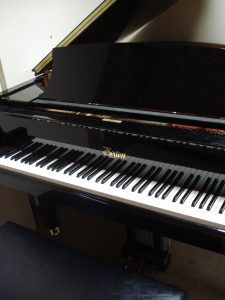Part I: Building the home music studio that won’t drive your neighbors crazy
Email from M.R., a long-time reader:
I’m a landlord in Somerville (I have two 2-family houses), I’m a long-time reader of the Globe RE blog, and finally, I’m a basement drummer. I’ve spent a few weekends’ worth of time sound-proofing the basement drum room in order to keep the sound from travelling to the 2nd & 3rd FL unit (we live on 1st-FL unit). I feel that windows are easily treated (which you mention in yr piece), but doors & walls are harder to treat, but are the larger problem. Especially if uninsulated, drywall or plaster walls w/ studs in between resonate like a snare drum itself & pass the sound very readily. Studio solutions to this are to double the drywall on a given wall (w/ butt-joints offset from on another), and to use “resilient channel” to hang the drywall (imagine a spring-clip to hold the drywall, rather than screwing it to the studs/joists). For doors, solid-core doors w/ weather-stripping compressable-foam around the jam is a good solution. Dense-packed cellulouse (as subsidized by Mass Save!) is a decent solution to deaden hollow cavities between drywall/plaster, where cheaper & easier-to-install fiberglass-batts can’t be used (like in an attic or existing wall).
I spent small money (~$150) to drywall & insulate my basement room. There’s much more that could be done for another $150 & a weekend’s worth of work which would make drums on the 1st floor lightly audible, and completely inaudible on the 2nd/3rd FL. If a contractor was involved, I’d estimate a $2000 bill for double-drywalled-&-spackled 10×10 room w/ solid core door & fiberglass insulation. Attic? Due to difficult-to-drywall surfaces & spaces which take lots of blown cellulose… $8000.
 Part II: What piano fits with apartment living?
Part II: What piano fits with apartment living?
My grand-piano-owning client also worked as a piano salesman in Boston. He had more advice for pianists:
- As a renter, you cannot get insurance for a piano. As a property owner, you can.
- There are some excellent, experienced movers in our area. The move will involve a crane at both ends. The cost was under $1000.
- He advocates a true grand piano instead of an upright grand for apartment living. There are both moving and placement issues with an upright. A grand piano is easier to move, because the legs come off and the harp can be moved in sideways. An upright moves in a single unit and may not get into the apartment as easily. An upright does not do corners nearly as well. Also, once it is in, you need a wall that is both long enough and away from heat to place the instrument.


Leave A Comment